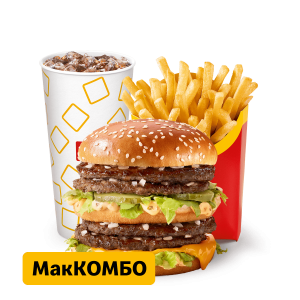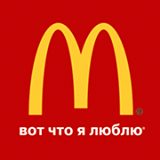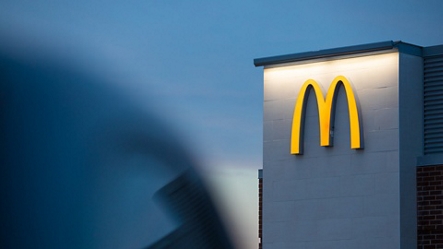After operating in Russia for three decades and investing billions of dollars in the process, McDonald’s is exiting the market. Its imminent departure is not because of lack of demand for the fast food chain’s burgers, chicken nuggets, french fries or vanilla soft serve frozen desserts. The retreat has been triggered by the war launched in Ukraine by Vladimir Putin.
An increasingly sanctioned Russia, where McDonald’s manages more than 80 per cent of the approximately 850 restaurants under the Golden Arches – all of which are now closed – reportedly accounts for nine percent of the company’s revenue and three per cent of its operating profit.
McDonald’s President and CEO Chris Kempczinski explained the decision in an e-mail sent to owner-operators, employees and suppliers worldwide on May 16. His message follows:
“When I last wrote to you regarding the war in Ukraine and the humanitarian crisis resulting from it back in March, we held out hope for peace to soon return to the region.
“In fact, hope is what brought McDonald’s to the Russian market 32 years ago. Hope for a country that was opening itself to the world after decades of isolation. Hope that the world was becoming a little more connected – and that being able to get the same Big Mac in Moscow that you got in Chicago was a tangible (and tasty) symbol of our growing connection.
“We entered Russia because of the hope and promise our brand came to signify. Our presence in Russia inspired adages that went beyond our food — from “burger diplomacy” to a ‘McDonald’s peace theory’— and embodied the greater purpose and impact that brands like ours can have in the world. McDonald’s in Russia embodied the very notion of glasnost and took on outsized significance.

“The discussions to bring McDonald’s to Russia began at the 1976 Olympics in Canada. Members of the Russian Olympic Team needed a better way to get around the Olympic Village. So, we let them use our Big Mac Bus. That began 14 years of negotiations, culminating in the glorious day in January of 1990 when the first McDonald’s opened to so much hope and excitement in Pushkin Square.
“In the history of McDonald’s, it was one of our proudest and most exciting milestones. After nearly half a century of Cold War animosity, the image of the Golden Arches shining above Pushkin Square heralded for many, on both sides of the Iron Curtain, the beginning of a new era.
“I was a university student at the time, and I vividly remember discussing this in a class led by a noted Russian scholar, Professor Jerry Hough. We were all struck by images on the evening news of lines that stretched more than a quarter mile around the Square, where Russians were welcomed with a smile, and the friendly greeting, ‘Welcome to McDonald’s, may I take your order?’
“For many of us, those words were commonplace, but for Russians they were revelatory. As a grade-school teacher in Moscow told a foreign correspondent after getting her food, ‘This is a lesson in humane treatment which our children have to learn.’
“Russians welcomed McDonald’s into their daily lives, their families, and their friendships. McDonald’s became an integral part of Russia, serving millions of Russians every day across eleven time zones and 850 communities. From Kaliningrad to St. Petersburg, Moscow to Nizhny Novgorod all the way out to Vladivostok, Russians embraced McDonald’s. And we embraced Russia.
“Over the years, McDonald’s has invested billions of dollars in the country to build the supply chain, infrastructure and human capital necessary to support our growing business. Today, we employ more than 60,000 people in our restaurants, and we’ve cultivated from scratch a network of local suppliers who employ tens of thousands more. If you want to understand the McDonald’s multiplier effect on a local economy, one need only look at our impact on Russia.
“Of course, as always, McDonald’s contributions have gone far beyond the merely commercial. Ronald McDonald House Charities in Russia has supported thousands of parents with sick children. And tens of thousands of Russians have graduated from our Hamburger University, where they’ve learned business skills that opened new career opportunities.
“McDonald’s and Russia have become so intertwined that it seems impossible to imagine one without the other. And yet, unfortunately, that is where we are today.
 “As you know, almost every multinational company like McDonald’s is reconsidering their presence in Russia. This is a complicated issue that’s without precedent and with profound consequences. As I’ve reflected on this issue, I’ve asked myself five fundamental questions, the first four of which are practical and largely commercial:
“As you know, almost every multinational company like McDonald’s is reconsidering their presence in Russia. This is a complicated issue that’s without precedent and with profound consequences. As I’ve reflected on this issue, I’ve asked myself five fundamental questions, the first four of which are practical and largely commercial:
“Are we legally allowed to operate in the country? Do we have the freedom to operate the business and meet the needs of our customers and crew unimpeded? Is our presence in the market brand-enhancing to our global operations? And does it make good business sense?
“Unfortunately, the answer to each of these questions is currently no – and I don’t see that changing for the foreseeable future.
“The fifth and final question is more complicated: does it align with our values? Fred Turner espoused one value more than any other: Do the right thing.
“Some might argue that providing access to food and continuing to employ tens of thousands of ordinary citizens, is surely the right thing to do. But it is impossible to ignore the humanitarian crisis caused by the war in Ukraine. And it is impossible to imagine the Golden Arches representing the same hope and promise that led us to enter the Russian market 32 years ago.
“That’s why McDonald’s has made the decision to completely exit the Russian market. For the first time in our history, we are ‘de-Arching’ a major market and selling our portfolio of McDonald’s restaurants. They will no longer carry the McDonald’s name or serve our menu. The Golden Arches will shine no more in Russia.
“This was not an easy decision, nor will it be simple to execute given the size of our business and the current challenges of operating in Russia. But the end-state is clear. What makes this especially hard is the dedication of our McDonald’s employees and suppliers in Russia, whose commitment to the brand set a new standard for customer service in the region. We are inspired by their passion for McDonald’s and our customers, and we are forever grateful for their contributions.
“It’s impossible to predict what the future may hold, but I choose to end my message with the same spirit that brought McDonald’s to Russia in the first place: hope.
“Thus, let us not end by saying, ‘Goodbye.’ Instead, let us say as they do in Russian: До новой встречи. “Until we meet again.”






